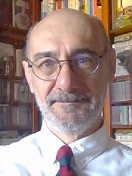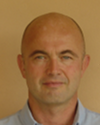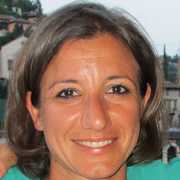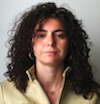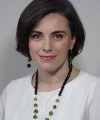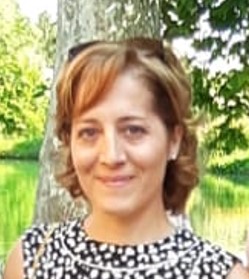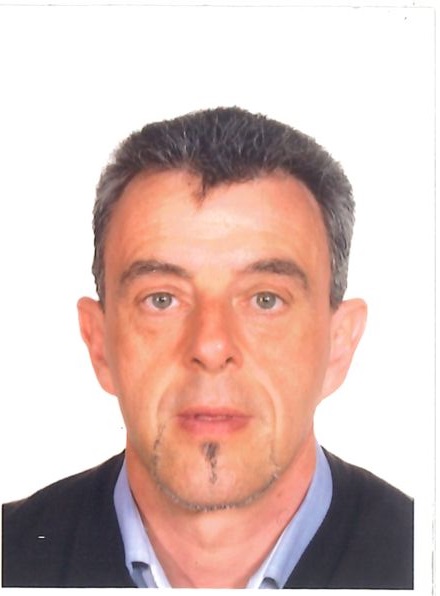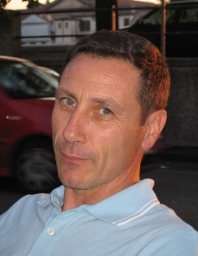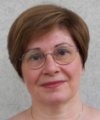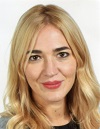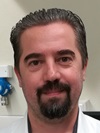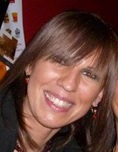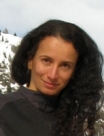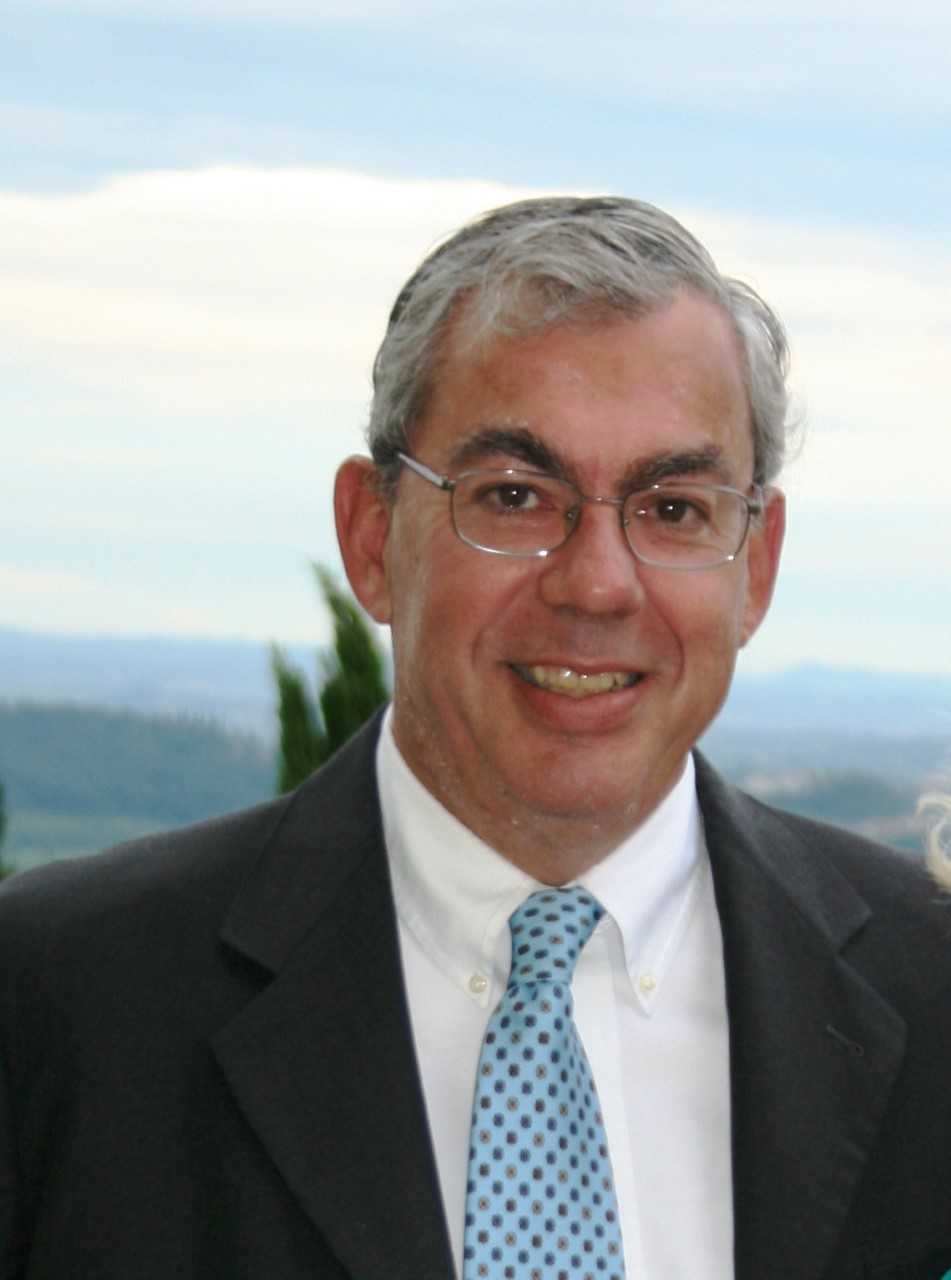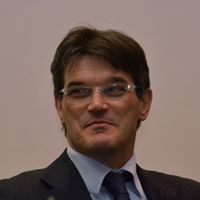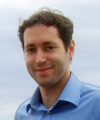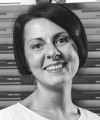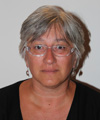Studying at the University of Verona
Here you can find information on the organisational aspects of the Programme, lecture timetables, learning activities and useful contact details for your time at the University, from enrolment to graduation.
Academic calendar
The academic calendar shows the deadlines and scheduled events that are relevant to students, teaching and technical-administrative staff of the University. Public holidays and University closures are also indicated. The academic year normally begins on 1 October each year and ends on 30 September of the following year.
Course calendar
The Academic Calendar sets out the degree programme lecture and exam timetables, as well as the relevant university closure dates..
| Period | From | To |
|---|---|---|
| annuale | Oct 1, 2021 | May 27, 2022 |
| 1° semestre | Oct 1, 2021 | Jan 21, 2022 |
| 2° semestre | Mar 1, 2022 | May 27, 2022 |
| Session | From | To |
|---|---|---|
| Sessione invernale | Jan 24, 2022 | Feb 25, 2022 |
| Sessione estiva | Jun 6, 2022 | Jul 8, 2022 |
| Sessione autunnale | Aug 29, 2022 | Sep 30, 2022 |
| Sessione straordinaria a.a. 2021/22 | Jan 23, 2023 | Feb 24, 2023 |
| Session | From | To |
|---|---|---|
| Sessione estiva | Jul 11, 2022 | Jul 29, 2022 |
| Sessione autunnale | Oct 10, 2022 | Nov 4, 2022 |
| Sessione straordinaria a.a 2021/22 | Mar 13, 2023 | Apr 14, 2023 |
| Period | From | To |
|---|---|---|
| Festa di Tutti i Santi | Nov 1, 2021 | Nov 1, 2021 |
| Festa dell'Immacolata Concezione | Dec 8, 2021 | Dec 8, 2021 |
| Festa della Liberazione | Apr 25, 2022 | Apr 25, 2022 |
| Festa di San Zeno - S. Patrono di Verona | May 21, 2022 | May 21, 2022 |
| Festa della Repubblica | Jun 2, 2022 | Jun 2, 2022 |
| Description | Period | From | To |
|---|---|---|---|
| Tirocinio scienze motorie | Attività di tirocinio | Oct 1, 2021 | Sep 30, 2022 |
Exam calendar
Exam dates and rounds are managed by the relevant Exercise Science Teaching and Student Services Unit.
To view all the exam sessions available, please use the Exam dashboard on ESSE3.
If you forgot your login details or have problems logging in, please contact the relevant IT HelpDesk, or check the login details recovery web page.
Should you have any doubts or questions, please check the Enrollment FAQs
Academic staff
 paola.cesari@univr.it
paola.cesari@univr.it
 rosarita.cuccoli@univr.it
rosarita.cuccoli@univr.it
 lonardifabiola@gmail.com
lonardifabiola@gmail.com
 alberto.nuvolari@gmail.com
alberto.nuvolari@gmail.com
 gilberto.pilati@univr.it
gilberto.pilati@univr.it
 angeloluigi.sangalli@univr.it
angeloluigi.sangalli@univr.it
 fabio.sartori@univr.it
fabio.sartori@univr.it
 stefano-venturi@libero.it
stefano-venturi@libero.it
Study Plan
The Study Plan includes all modules, teaching and learning activities that each student will need to undertake during their time at the University.
Please select your Study Plan based on your enrollment year.
1° Year
| Modules | Credits | TAF | SSD |
|---|
Biochemistry of exercise
Principles of sport management
Introduction to chinesiology and sport
2° Year activated in the A.Y. 2022/2023
| Modules | Credits | TAF | SSD |
|---|
Introduction to movement analysis and motor control
Sport and exercise psychology
Training Methodology
3° Year activated in the A.Y. 2023/2024
| Modules | Credits | TAF | SSD |
|---|
Preventive and adapted physical activity
Pharmacology and cardiology applied to physical activity
Diseases of the Locomotor Apparatus
Teaching individual and team sports
| Modules | Credits | TAF | SSD |
|---|
Biochemistry of exercise
Principles of sport management
Introduction to chinesiology and sport
| Modules | Credits | TAF | SSD |
|---|
Introduction to movement analysis and motor control
Sport and exercise psychology
Training Methodology
| Modules | Credits | TAF | SSD |
|---|
Preventive and adapted physical activity
Pharmacology and cardiology applied to physical activity
Diseases of the Locomotor Apparatus
Teaching individual and team sports
| Modules | Credits | TAF | SSD |
|---|
Legend | Type of training activity (TTA)
TAF (Type of Educational Activity) All courses and activities are classified into different types of educational activities, indicated by a letter.
Biomechanics [Matricole pari] (2022/2023)
Teaching code
4S02417
Teacher
Coordinator
Credits
6
Language
Italian
Scientific Disciplinary Sector (SSD)
M-EDF/01 - PHYSICAL TRAINING SCIENCES AND METHODOLOGY
Period
2° semestre dal Mar 1, 2023 al May 27, 2023.
Location
VERONA
Learning objectives
The course aims to provide cultural and operational tools for the biomechanical analysis of human movement and sport activities (in water and on land). Part of the program will be carried out in the form of numerical exercises (data analysis) to enable the students to verify, from a practical point of view, the theoretical knowledge acquired and to familiarize themselves with the main biomechanical means of calculation.
Prerequisites and basic notions
Basic knowledge of physics: i) mechanics of rigid bodies: statics, kinematics and dynamics (linear and angular); ii) mechanics of deformable bodies; ii) fluid mechanics.
Basic knowledge of mathematics and trigonometry.
Basic knowledge of the anatomy of the musculoskeletal system. Basic knowledge of muscle physiology.
Program
Linear kinematics. Position, velocity and acceleration. Parabolic motion.
Angular kinematics. Polar coordinates. Angular position, velocity and acceleration. Uniform circular motion.
Muscle mechanics. Force-velocity and force-length relationships. Muscle architecture and specific tension. Mechanical proprieties of different types of muscle fibers. Mechanics of tendons and ligaments: stress and strain, Young's modulus.
Linear kinetics and dynamics. Newton Laws. External and internal forces; normal and shear forces; force distribution and pressure. Frictional forces. Work and power. Kinetic, potential and elastic energy. The principle of energy conservation. Impulse and linear momentum. Impacts and collisions. The coefficient of restitution.
Angular kinetics and dynamics. Moment of inertia. Rotational kinetic energy. Torque and center of mass. Angular work and power. Conservation of angular momentum. Joint biomechanics.
Fluid mechanics. Statics: hydrostatic pressure, principle of Archimedes and under-water torque. Fluid dynamics: viscosity and Reynolds number. Bernulli’s principle. Hydrodynamic resistance: shape, pressure and friction drag. Fluids in linear and turbulent motion, the boundary layer. Magnus effect.
Bibliography
Didactic methods
The course includes: i) 5 CFU of theoretical lessons on the topics indicated in the program and ii) 1 CFU of numerical exercises which aim to allow students to acquire a minimum of familiarity with the basic biomechanical calculations. During the practical exercises, how to perform a simple video analysis will also be explained, through the use of programs such as Tracker and J-Image.
Learning assessment procedures
Written test (lasting an hour and a half) followed by an (possible) oral interview (in the week following the written test).
The written test consists of 10 questions (max 3 points each); 4/10 are open questions (on the topics covered in the course) and 6/10 are problems that require a numerical calculation (application of the formulas covered in the course).
Evaluation criteria
The score for each question (0-3 points) is assigned based on the completeness of the answer and the level of depth / understanding of the topic.
Criteria for the composition of the final grade
A grade of 30 with honors will be awarded to those who correctly answer all the questions.
The oral interview is proposed to those who have reached a mark in the written test that is just sufficient (18-20). The student can decline the invitation and repeat the written exam in a subsequent session. If the oral test fails, the student must also repeat the written test.
The teacher is available to organize an oral interview for those who want to improve their written grade.
Exam language
Italiano (Inglese se richiesto)
Type D and Type F activities
I Regolamenti dei corsi di laurea e di laurea magistrale di scienze motorie prevedono che gli studenti possano completare il proprio piano didattico, frequentando oltre agli insegnamenti obbligatori anche delle attività formative a scelta, per approfondire alcuni aspetti tematici o settori di interesse, in coerenza con il proprio percorso formativo.
Le attività formative a scelta di ambito D sono indicate all’interno del piano didattico del corso di studio prescelto, mentre le attività formative di ambito F sono individuate da una apposita commissione di docenti. Queste ultime attività possono essere conferenze, seminari, webinar, altro e vengono acquisite con una valutazione e non con un voto in trentesimi.
PERCORSO ELETTIVO
E' possibile personalizzare il proprio piano didattico, selezionando determinate attività a scelta e attivando così un "percorso elettivo" di preferenza tra quelli proposti dal Collegio didattico di Scienze motorie.
Ai link sotto indicati si possono trovare le tabelle con le attività a scelta e i percorsi elettivi disponibili e le indicazioni per l'inserimento delle attività a scelta nel piano didattico da compilare a cura dello studente:
Tabelle delle attività a scelta
Regole per la compilazione del piano didattico con le attività a scelta
COMPETENZE TRASVERSALI
Scopri i percorsi formativi promossi dal Teaching and learning centre dell'Ateneo, destinati agli studenti iscritti ai corsi di laurea, volti alla promozione delle competenze trasversali:
https://talc.univr.it/it/competenze-trasversali
| years | Modules | TAF | Teacher | |
|---|---|---|---|---|
| 3° | Physical bases of exercise prescription | D |
Silvia Pogliaghi
(Coordinator)
|
|
| 3° | Sport physiology | D |
Silvia Pogliaghi
(Coordinator)
|
|
| 2° 3° | Advanced nutrition for sports | D |
Silvia Pogliaghi
(Coordinator)
|
|
| years | Modules | TAF | Teacher | |
|---|---|---|---|---|
| 3° | Theory and pedagogy of nordic walking | D |
Barbara Pellegrini
(Coordinator)
|
|
| 2° 3° | Public health applied to exercise | D |
Stefano Tardivo
(Coordinator)
|
|
| 2° 3° | Statistics applied to movement sciences | D |
Maria Elisabetta Zanolin
(Coordinator)
|
|
Career prospects
Module/Programme news
News for students
There you will find information, resources and services useful during your time at the University (Student’s exam record, your study plan on ESSE3, Distance Learning courses, university email account, office forms, administrative procedures, etc.). You can log into MyUnivr with your GIA login details: only in this way will you be able to receive notification of all the notices from your teachers and your secretariat via email and soon also via the Univr app.
Graduation
List of theses and work experience proposals
| theses proposals | Research area |
|---|---|
| ANTROPOMETRIA E COMPOSIZIONE CORPOREA NEL CALCIO | Various topics |
| ANTROPOMETRIA TRIDIMENSIONALE - ESEMPI APPLICATIVI | Various topics |
| Controllo posturale e locomozione in età evolutiva | Various topics |
| EFFETTO DELLA VIBRAZIONE CORPOREA TOTALE SU PEDANA | Various topics |
| Feedback Aumentativo e Apprendimento Motorio | Various topics |
| Il ruolo della fatica cognitiva nella prestazione motoria e nella percezione corporea: teorie di riferimento e strumenti di indagine | Various topics |
Gestione carriere
Student mentoring
Orario lezioni
L’orario delle lezioni comprende
Lezioni Frontali in aula
Esercitazioni e laboratori
Questi ultimi sono organizzati per gruppi dai singoli docenti responsabili dei corsi.
L'orario è pubblicato nel portale studenti
Modalità di frequenza
Vige l'obbligo di frequenza al 70% come specificato nel Regolamento di ogni singolo corso di laurea e laurea magistrale:
Ulteriori informazioni:
L'accesso alle pagine Moodle dei singoli insegnamenti è vincolato alla compilazione del piano di studi.
App Univr Lezioni, FAQ e guida all'utilizzo sono disponibili al seguente link: orario-lezioni-e-modalita-di-frequenza
Comunicati: Avvisi per studenti
Internships
Internships are aimed at enabling students to gain direct knowledge of the world of work and to acquire specific professional skills.
Internships are carried out under the responsibility of an individual lecturer, and can be carried out in professional firms, public administration bodies and companies recognised by the University of Verona.
Any CFU credits gained by doing internships will be recognised and recorded by the University in accordance with the relevant University regulations in force (Regolamento d’Ateneo per il riconoscimento dei crediti maturati negli stage universitari).
For further information on internships, please go to: https://www.univr.it/it/i-nostri-servizi/stage-e-tirocini.
Student login and resources
Recupero Obblighi Formativi - OFA
I corsi di supporto per il recupero degli Obblighi Formativi aggiuntivi - OFA di Chimica, Fisica, Matematica - sono organizzati annualmente e sono segnalati direttamente nell'orario delle lezioni del 1° anno ► vedi pagina.
Al termine di ciascun corso frequentato gli studenti dovranno sostenere e superare una prova scritta per colmare il debito entro il 15 dicembre dell'anno successivo, per potersi iscrivere al 2° anno.
►Date e orari degli appelli sono indicati nel Calendario Didattico - Calendario Esami.
In caso di mancato superamento degli obblighi formativi entro il 15/12, lo studente resterà iscritto al 1° anno anche per l'anno successivo come ripetente, dovrà sostenere la verifica di recupero in un altro appello e NON non potrà frequentare o sostenere gli esami del 2° anno.
Certificazione medica di idoneità
Riferimenti normativi principali: DM 24 aprile 2013 art. 3, GU 169 del 20-07-2013; Decreto del Ministro della Salute dell’8 agosto 2014 e s.m.i.
Per frequentare le attività dei corsi di Laurea e Laurea magistrale di Scienze motorie è obbligatorio presentare la certificazione medica di idoneità fisica per attività sportiva non agonistica. La certificazione è necessaria per accedere alle attività pratiche-esercitative e al tirocinio.
à COME OTTENERE LA CERTIFICAZIONE
La certificazione - riportante l’indicazione che è stato eseguito l’ECG a riposo - può essere rilasciata da:
- centri o servizi di medicina dello sport delle ASL (ora ATS) e delle aziende ospedaliere
- istituti della Federazione Medico Sportiva Italiana
- centri pubblici o privati autorizzati:
- dai medici di medicina generale di libera scelta, relativamente ai propri assistiti;
- dal medico specialista in medicina dello sport.
L’ECG a riposo deve essere ripetuto annualmente.
E’ ammesso anche il certificato medico di idoneità alla pratica sportiva agonistica, per chi ne fosse già in possesso.
à SCADENZA PER LA PRESENTAZIONE
La certificazione medica deve essere prodotta al momento dell'immatricolazione e, comunque, entro l’inizio delle lezioni alla Segreteria Corsi di Studio Scienze motorie. Spetta agli studenti rinnovarla annualmente alla scadenza - per ogni anno di iscrizione in corso o fuori corso. La Segreteria effettuerà periodicamente dei controlli sulla consegna dei certificati.
NOTA: Studenti immatricolati a seguito di SUBENTRO/RIPESCAGGIO/TRASFERIMENTO IN INGRESSO: se non è possibile rispettare la scadenza di presentazione del certificato sopra indicata, avvisare la Segreteria Corsi di Studio Scienze, scrivendo all’indirizzo certmed.scienzemotorie@ateneo.univr.it
à MODALITA’ DI CONSEGNA
La certificazione va inviata alla Segreteria Corsi di Studio Scienze motorie dalla propria e-mail istituzionale nome.cognome@studenti.univr.it all’indirizzo certmed.scienzemotorie@ateneo.univr.it.
Esami propedeutici
Alcuni insegnamenti del piano didattico sono definiti "propedeutici", perchè permettono di acquisire le conoscenze necessarie per affrontare lo studio di insegnamenti successivi. Di conseguenza, è obbligatorio superare gli esami degli insegnamenti propedeutici prima di sostenere gli esami di un anno seguente. Le propedeuticità presenti sono indicate di seguito nella tabella:
| Anno | Esami propedeutici | Anno | Esami che richiedono il superamento di propedeuticità | |
| 1 | Biologia | prima di | 2 | Fisiologia |
| Anatomia umana | ||||
| 1 | Biologia | prima di | 2 | Biomeccanica |
| Anatomia umana | ||||
| 1 | Biologia | prima di | 2 | Tecniche e metodologie dell'allenamento |
| Anatomia umana | ||||
| Biochimica del movimento | ||||
| 2 | Fisiologia | |||
| 1 | Biologia | prima di | 3 | Tecniche e didattica degli sport individuali e di squadra |
| Anatomia umana | ||||
| Biochimica del movimento | ||||
| 2 | Fisiologia | |||
| Tecniche e metodologie dell’allenamento | ||||
| 1 | Biologia | prima di | 3 | Attività motorie preventive e adattate |
| Anatomia umana | ||||
| Biochimica del movimento | ||||
| 2 | Fisiologia | |||
| Tecniche e metodologie dell’allenamento | ||||
| 1 | Biologia | prima di | 3 | Malattie dell'apparato locomotore |
| Anatomia umana | ||||
| 2 | Fisiologia | |||
| 1 | Biologia | prima di | 3 | Farmacologia e cardiologia applicate all'attività motoria |
| Anatomia umana | ||||
| 2 | Fisiologia | |||

 0458028142
0458028142

